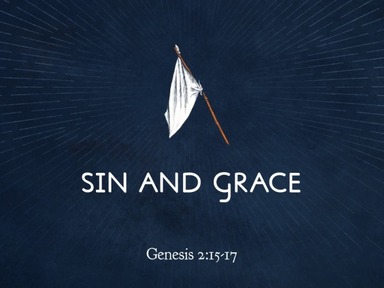Sin and Grace

Sin and Grace
The significance of the tree of the knowledge of good and evil then was not in its fruit, but in the line of disobedience she would have to cross to get to it. Eve had to choose how she would respond: with the sin of disobedience or with spiritual awakening. How would these humans respond? Would their motivation be love for their Creator who deeply cared about them, had provided for their needs and wanted them to choose Him out of love, or would they follow an inner urge for independence?
God was deliberately forcing Adam and Eve to make a reasoned choice between good and evil. To refuse the temptation, when it came, would provide them with the ability to discriminate between good and evil. The evil was in that to acquire the fruit, they would have to disregard the expressed will of God. God had given them free will for just this specific moment.
We were powerless
The very acts and attitudes of sin that nailed Him to the Cross were being dealt with in grace by the subjection of Christ to that cross. The Cross in its horrible illustration of overwhelming sin was in itself a demonstration of superoverwhelming grace. Sin at is blackest moment on Calvary was touched by grace at its most golden.
